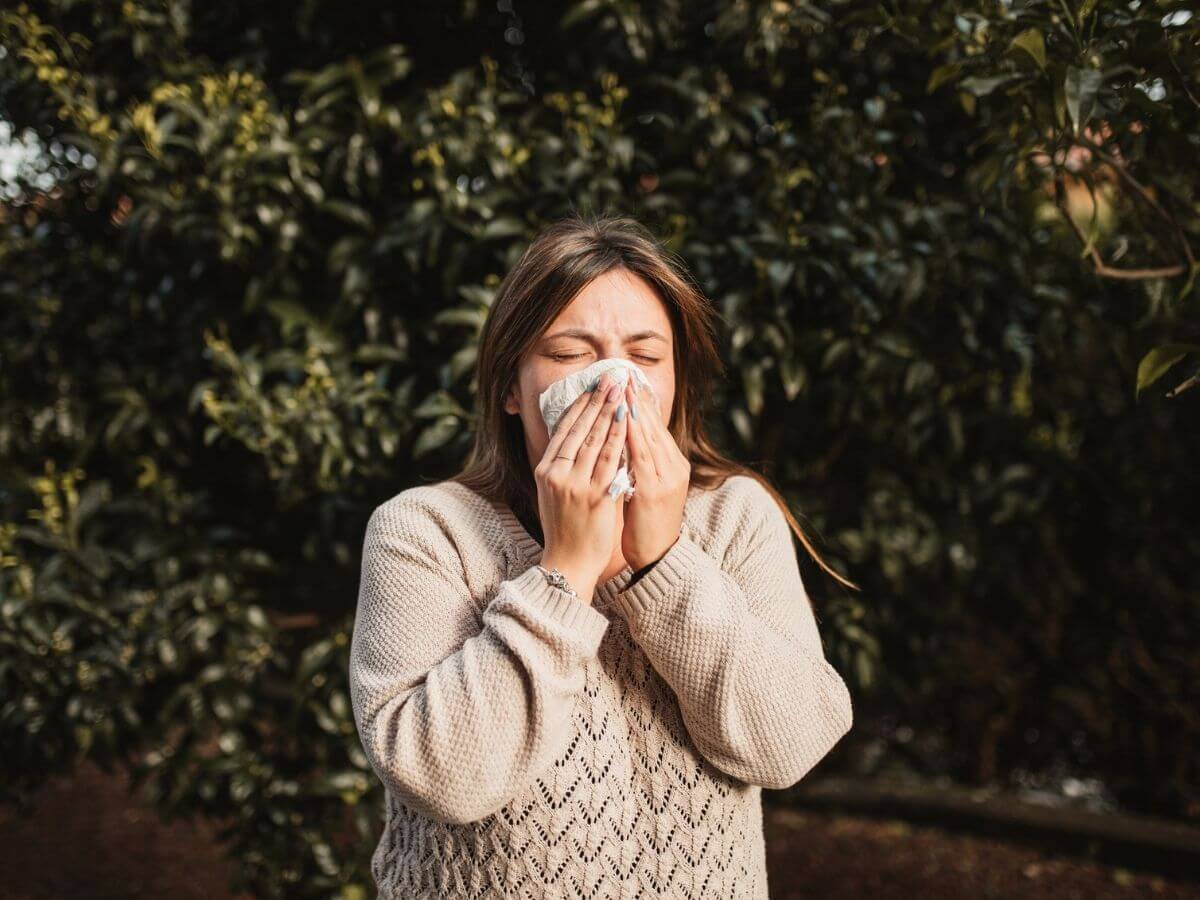Allergies vs. Colds: What’s the Difference?

Allergies vs. cold… It’s an internal debate people often have when they find themselves sneezing and blowing their noses frequently. Why does it matter whether it’s allergies or a cold that’s causing their symptoms? The duration of the episode is one reason. A cold will run its course, but allergies can go on indefinitely, so you have to plan for that.
There are differences between allergies and a cold, but not everyone knows what they are. This article explains them.
How Do You Know the Difference Between a Cold and Allergies?
You feel rundown, it’s hard to breathe through your nose, and you’re just generally miserable. How do you know if you have a cold or allergies? Below are the symptoms of each condition.
Cold symptoms
- Sneezing
- Runny nose and congestion
- Mucus that’s thick or colored
- Sore throat
- Cough
- Mild body aches and/or headache
- Low-grade fever
- Symptoms that last 7 to 10 days
- Symptoms that aren’t specific to a time of year, location, etc.
Allergy symptoms
- Sneezing
- Mucus that’s clear and watery
- Itchy, watery eyes
- Symptoms that last longer than 7 to 10 days
- Symptoms that occur only in certain situations like certain times of the year or being in a certain place (like the home of someone who has pets) a cat.
In summary, some of the key differences between allergies and a cold are in the consistency of mucus (thicker with a cold), the itchy/watery eyes (typically not present in a cold), the lack of a “trigger” (time of year, presence of pets) in a cold, and the duration (allergies last longer).
What Causes Allergies and Colds?
Allergies and colds have different triggers or causes.
Allergy triggers
- Tree, grass, and weed pollen
- Mold
- Pet dander
- Dust mites
- Saliva and feces from insects in the home (like cockroaches)
Common cold causes
- Rhinoviruses
- Less commonly other types of viruses
Never Miss a Beat
Get the health and wellness news that matters most delivered straight to your inbox. Subscribe to our free email newsletter to stay up-to-date on the latest news and more.
Can Allergies Be Mistaken for a Cold?
For people who haven’t considered the symptoms listed above, it can be easy to think an allergy is a cold or vice versa. But upon closer assessment, it’s typically fairly easy to tell the two conditions apart.
Of course, there’s no reason that you can’t have them back-to-back or simultaneously. You might catch a cold right when symptoms from seasonal allergies (also called hay fever) are declining. Or you might be a seasonal allergy sufferer who comes down with a cold at the same time.
How Do You Tell if Sneezing Is a Cold or Allergies?
It can be difficult to determine the cause of one symptom in isolation. You’ve sneezed a few times — is that an allergy flare-up? A cold? Or have you simply inhaled something that’s irritated the lining of your nose?
You have to look at any other symptoms you have to get the full picture.
Is a Stuffy Nose an Allergy or Cold?
Just like sneezing, a stuffy nose can have multiple causes. This can include changes in humidity. Dry air can keep the mucus in your nose and sinuses from flowing and draining properly, making you feel stuffed up and congested.
Can Allergies Turn into a Cold or Sinus Infection?
People sometimes wonder if allergies can turn into a cold or sinus infection. The first part of the answer is that allergies can’t cause a cold. There are two different mechanisms at work — an immune response to something that shouldn’t cause a response in the first case and an appropriate response to a cold virus in the second.
As for allergies and sinus infections, there can be a link in that allergies can affect sinus drainage, and it’s easier for an infection to develop if the sinuses aren’t draining properly.
Learn More About the Common Cold vs. Allergies from Your Baptist Health Doctor
If you tend to get “colds” at the same time every year but are now wondering if maybe you have allergies instead, your doctor can help you sort things out. Tests can be performed to determine if you have seasonal allergies or even what’s called perennial hay fever — a year-round allergy to indoor allergens.
It’s also helpful to keep in mind the difference between a cold and the flu, since there are symptoms that overlap there, as well. This is especially important during cold and flu season.
If you don’t have a Baptist Health doctor yet, you can find one using our online provider directory.
Next Steps and Useful Resources
Find a Provider
Discover Care Options
How to Sleep Better with Allergies
Flu vs. Cold: How to Tell the Difference
What is a Summer Cold?



